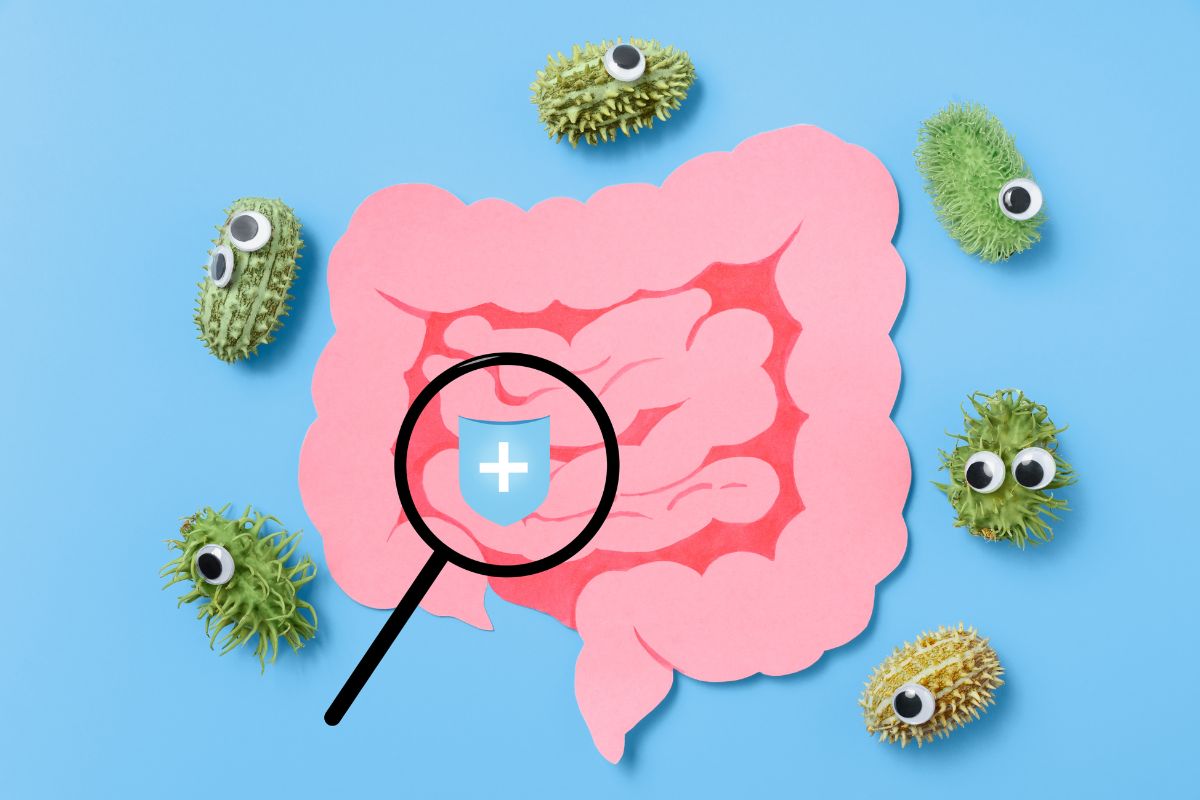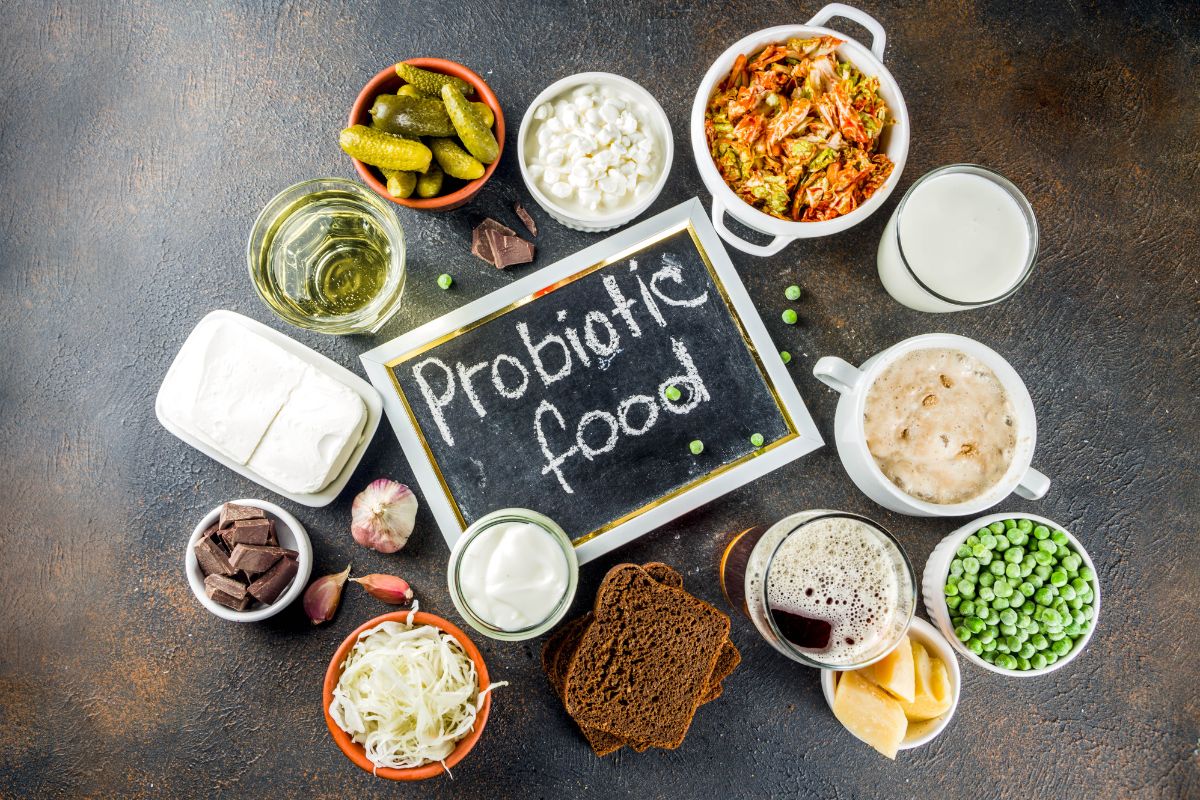Gut health has long been considered important in medicine and health care. However, it is only in recent years, with the development of science, that we have a better understanding of the essential role of the microbiome in the gut. Research shows that the gut not only affects digestion but also strongly impacts the immune system, mood, and overall health of the body.
- What is the Gut Microbiome?
The gut microbiome is a rich and diverse system consisting of billions of bacteria and other microorganisms that live in the digestive tract. They perform many vital tasks for the body, including breaking down food, producing essential nutrients, and protecting the body from harmful bacteria.
Good and bad bacteria are always present in parallel in the gut. The balance between them is essential in maintaining stable digestive function and preventing inflammation. When this balance is disrupted, it can lead to many health problems, such as constipation, diarrhoea, enteritis, and skin diseases.

- The Role of the Gut in the Immune System
The immune system and the gut have a close relationship. About 70% of the body's immune cells are located in the digestive system, which shows the critical role of the gut in protecting the body. When good bacteria in the gut are maintained at a balanced level, they help prevent the growth of harmful agents.
Beneficial bacteria such as Bifidobacterium and Lactobacillus can promote the activity of immune cells, helping the body fight pathogens and reduce the risk of infection. A healthy gut helps the immune system work more effectively, increasing the body's ability to fight against environmental pollution and harmful agents.
- Gut and Mental Health
There is a “gut-brain axis” connection between gut and mental health. Studies show that gut bacteria can produce chemical compounds such as serotonin and dopamine, essential neurotransmitters for regulating mood. An imbalance in the gut microbiome can lead to feelings of stress, anxiety, and even depression.
In addition, the gut can also affect sleep. When the microbiome is unstable, it can cause poor sleep and daytime fatigue. This shows that taking care of gut health not only helps improve digestive function but also has a positive impact on mental health and daily quality of life.

- The Role of the Gut in Digestion
The gut microbiome helps break down food into smaller molecules for the body to absorb quickly. At the same time, they help synthesise vitamins such as vitamin B, vitamin K, and short-chain fatty acids, which are nutrients necessary for cell function.
In addition, when the microflora is not maintained in a balanced state, the digestive process can malfunction, leading to problems such as bloating, indigestion, and poor absorption. This reduces the body's ability to use nutrients, affecting each person's overall health and energy.
- Methods to Support a Healthy Gut
Many methods can be applied to keep the gut healthy and balanced daily. Here are some suggestions to help maintain and improve gut health:
5.1. Supplement with Probiotic-Rich Foods
Probiotics are beneficial live bacteria that help maintain balance in the gut microflora. Foods rich in probiotics include yoghurt, kimchi, sauerkraut, and other fermented products. Additionally, supplements containing Bifidobacterium bacteria are good options for supporting the microbiome. For example, BB536 is a supplement containing Bifidobacterium probiotics, which helps maintain microbial balance and supports a healthy digestive system.

5.2. Eat a Balanced Diet and Get Enough Fiber
Fibre plays a vital role in feeding the good bacteria in the gut. Fibre-rich foods like green vegetables, whole grains, and fruits help maintain gut health and promote regular bowel movements. Soluble fibre also helps increase feelings of fullness and supports weight control while providing food for beneficial bacteria.
5.3. Limit Sugar and Processed Foods
Sugar and processed foods high in preservatives and chemical sweeteners can harm the gut microbiome. These foods increase harmful bacteria, causing imbalances and making the digestive system less effective. Limiting your sweets and packaged foods intake can help maintain a balanced gut microbiome.
5.4. Reduce Stress and Exercise
Stress can alter the gut environment, leading to an imbalance in the microbiome. Exercising and practising relaxation techniques such as meditation, yoga, or deep breathing can reduce stress and create a favourable environment for good bacteria to thrive. When stress is controlled, gut health and mental health are improved.

Overall, gut health is vital in protecting and improving overall health. A healthy gut ensures efficient digestion, boosts the immune system, supports mental health, and helps the body fight harmful environmental factors. Taking care of gut health is a process that requires perseverance and adopting healthy habits such as eating a balanced diet, taking probiotics, and managing stress.


 Vietnamese
Vietnamese  日本語
日本語  English
English 



